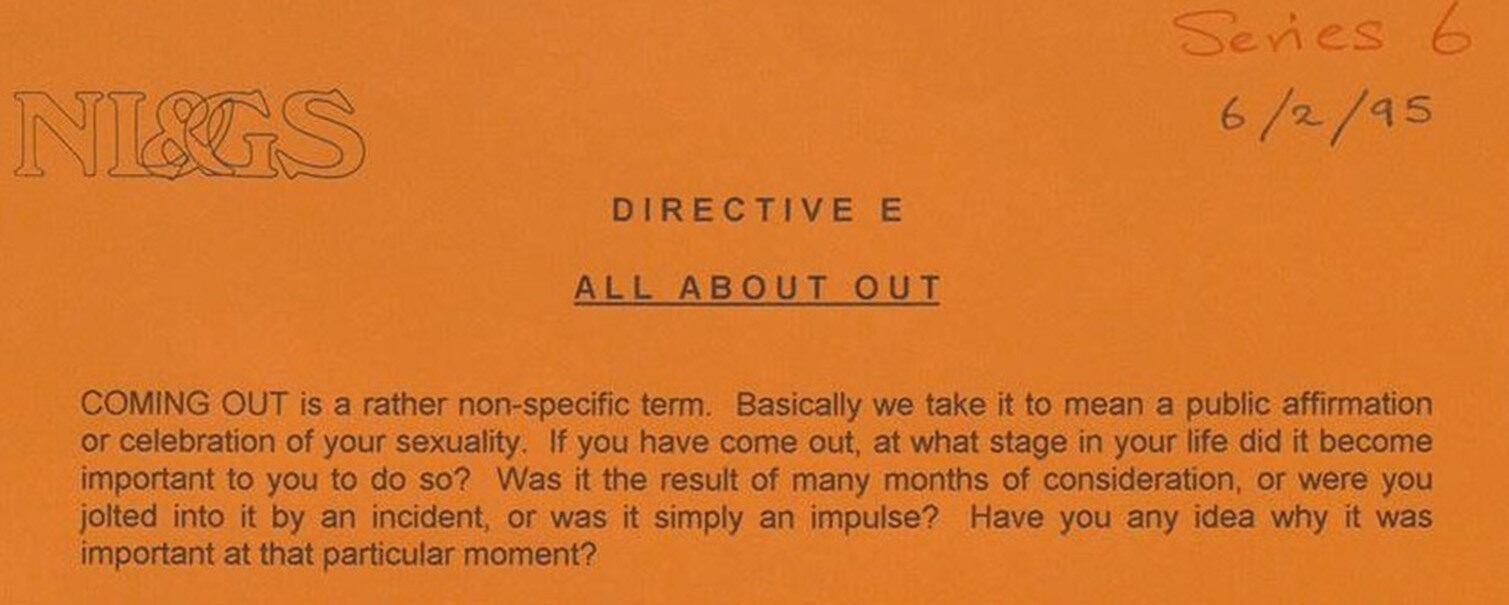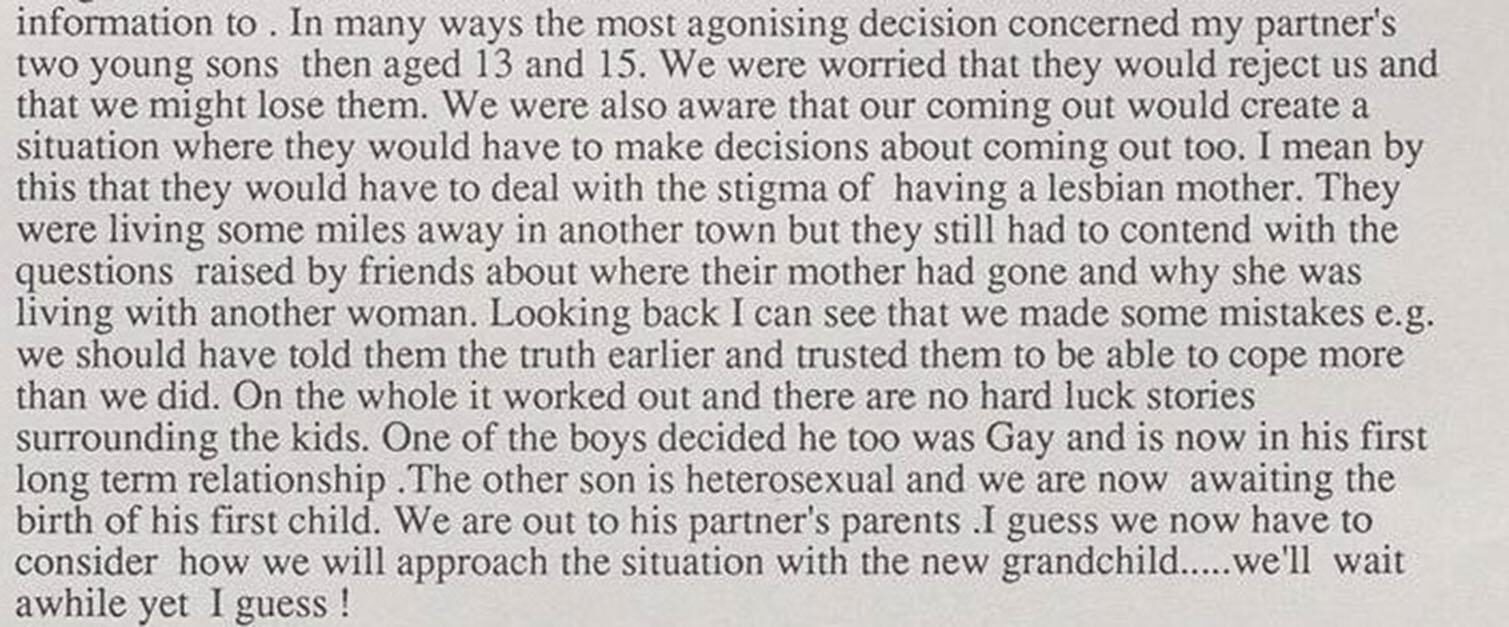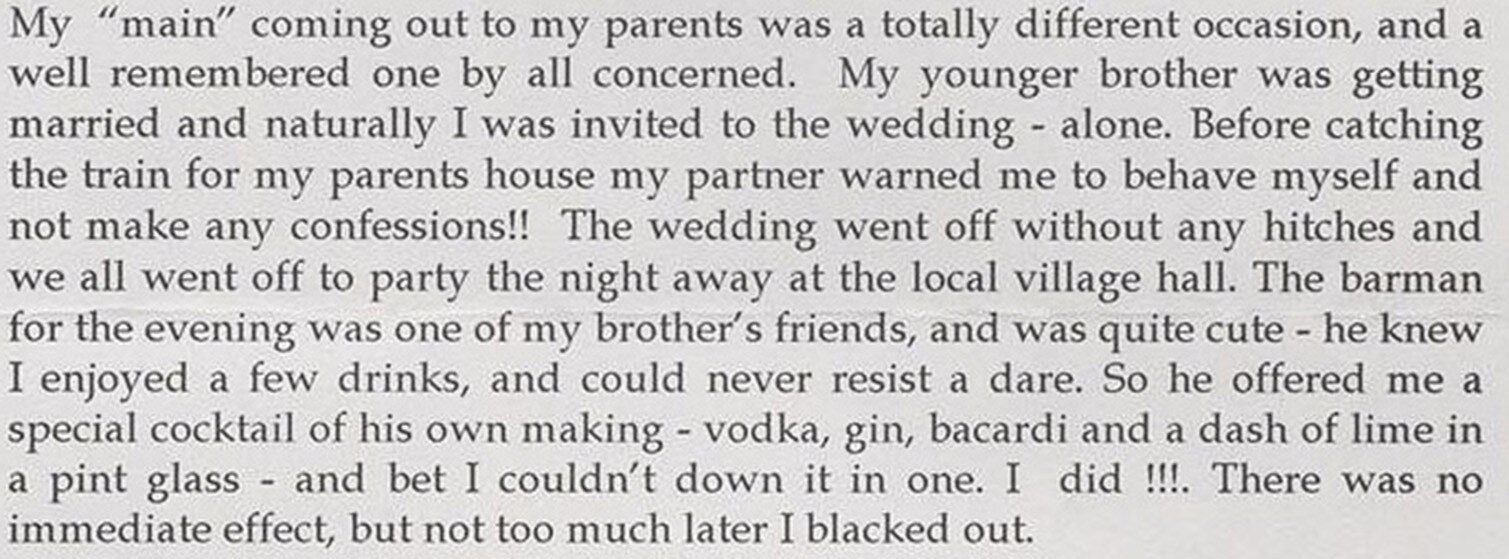I’m coming out: Personal stories from The National Lesbian and Gay Survey Collection
Sex & Sexuality Module II: Self Expression, Community and Identity contains hundreds of anonymous responses to The National Lesbian and Gay Survey collection, which is introduced in our resource with a video from Dr Justin Bengry, the Director of the Centre for Queer History at Goldsmiths, University of London.
The National Lesbian and Gay Survey was launched in 1986 by Kenneth Barrow, who was himself inspired by his own input to the Mass Observation Project as a respondent, to capture the personal thoughts, opinions, and lived experiences of Britain’s gay and lesbian community.
Perhaps one of the most personal experiences LGBTQ+ people face is the decision to come out (or not) and, inevitably, each person has their own story to tell. Here are three of them, from a 1995 directive titled All About Out.

© National Lesbian and Gay Survey. Material sourced from the Mass Observation Archive at the University of Sussex.
Respondent 611’s story starts with his relationship with a man who lived an ‘almost entirely closeted’ life. Eventually, what upsets 611 most about living a closeted life is ‘all the complicated lies (either active or by omission)’ they told, especially to his family. While 611 claims he came out at the worst possible time (‘two days before the traditional family Christmas!’), it is clear from the experiences that follow that his decision allowed him to find happiness.
On coming out, 611 offers the following advice:

© National Lesbian and Gay Survey. Material sourced from the Mass Observation Archive at the University of Sussex.
Respondent 602 shares 611’s view that coming out is ‘inevitably a continuing and unending process which can be a daily aspect of our lives’. 602 details how ‘as for many people’ her first coming out was to herself, which she found ‘confirming and disconcerting’, however, ‘at that time I had an overwhelming sense of myself coming home at last’.
602 shares ‘the most agonising decision’ around her and her partner coming out to her partner’s two children because they feared that they would be rejected, but also that they would be forcing the children to ‘deal with the stigma of having a lesbian mother’.
In fact, their coming out created an open dialogue in which ‘one of the boys decided he too was gay’:

© National Lesbian and Gay Survey. Material sourced from the Mass Observation Archive at the University of Sussex.
Respondent 808 would arguably make 611 think again about their claim to coming out at the worst possible time…

© National Lesbian and Gay Survey. Material sourced from the Mass Observation Archive at the University of Sussex.
What followed for 808 was an awkward breakfast and a difficult conversation with his parents about his loud declaration of his queerness. His parents ‘suggested that I should move home so that I could get better’ but 808 states that ‘there was nothing wrong with me, that I was perfectly happy as I was’.
The parents bring in his aunt, both to help convince 808 to do as they say but also to assure her secrecy, but 808’s aunt was having none of it:

© National Lesbian and Gay Survey. Material sourced from the Mass Observation Archive at the University of Sussex.
808’s parents eventually come around and accept his sexuality, and they treat his partner as a part of the family. Although 808 recognises that ‘this definitely was not the best way of handling the situation’ he is ‘yet to find a way that is’ and offers these final uplifting words of advice for those thinking about coming out:

© National Lesbian and Gay Survey. Material sourced from the Mass Observation Archive at the University of Sussex.
For more information about Sex & Sexuality, including pricing, please request a demo.
Recent posts

The blog highlights American Committee on Africa, module II's rich documentation of anti-apartheid activism, focusing on the National Peace Accord, global solidarity, and student-led divestment campaigns. It explores the pivotal role of universities, protests, and public education in pressuring institutions to divest from apartheid, shaping global attitudes toward social justice and reform.

This blog examines how primary sources can be used to trace the impact of young voices on society, particularly during pivotal voting reforms in the UK and the US. Explore materials that reveal insights into youth activism, intergenerational gaps, and societal perceptions, highlighting their interdisciplinary value for studying youth culture, activism, and girlhood across history.
